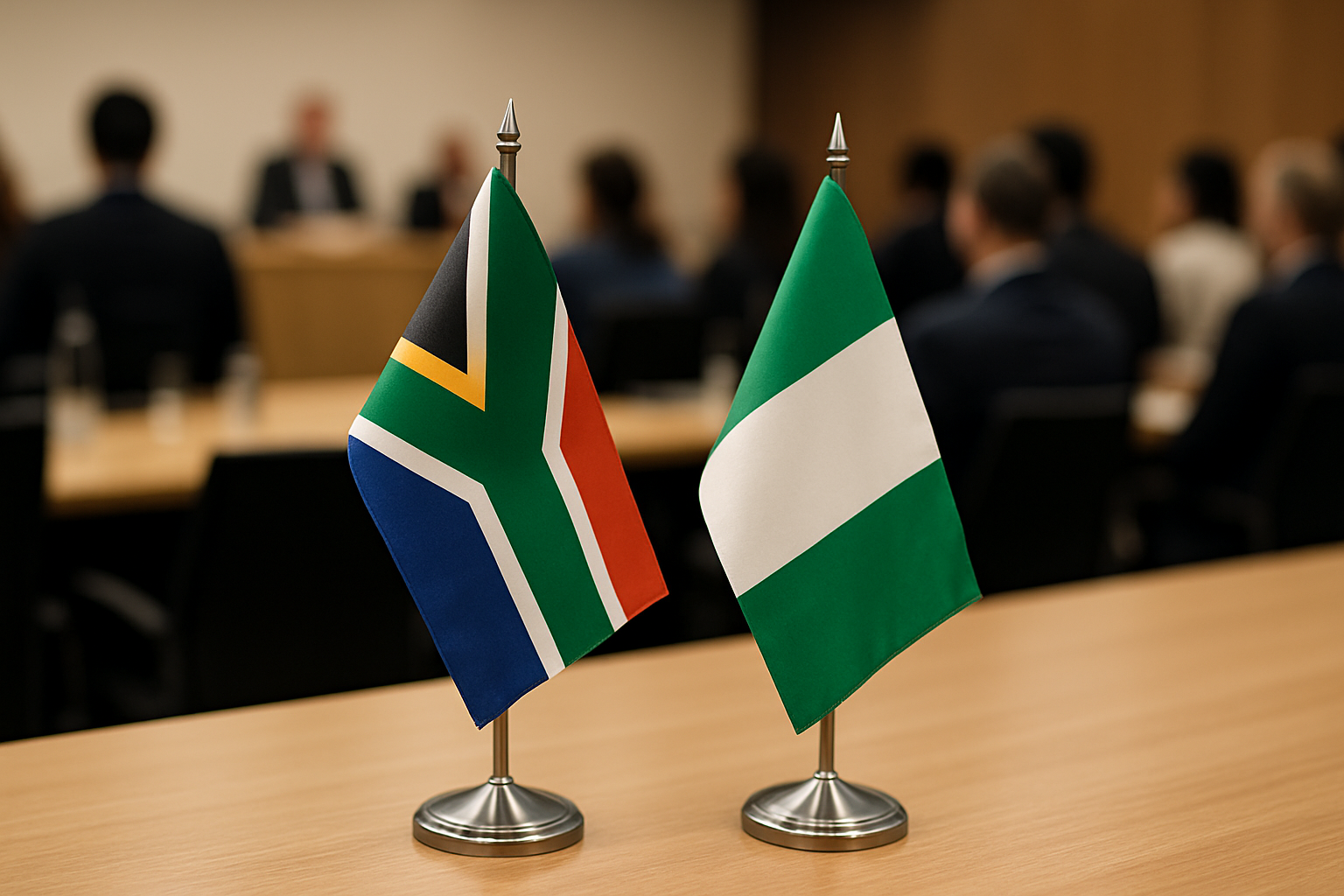SA-Nigeria Private Sector Dialogue Aims to Boost Trade and Investment Ties
Tau emphasized the importance of such collaborative platforms for identifying opportunities, overcoming regulatory challenges, and ensuring that economic diplomacy translates into tangible outcomes.

- Country:
- South Africa
In a significant move to strengthen economic relations between two of Africa’s largest economies, the Department of Trade, Industry and Competition (the dtic), in collaboration with MTN Group, is set to host the South Africa-Nigeria Private Sector Engagement Session. Scheduled for Wednesday at MTN's Head Office in Johannesburg, this event represents a strategic effort to enhance bilateral trade and investment flows.
The engagement session seeks to provide a robust platform for meaningful dialogue between public and private sector stakeholders. South African companies currently operating in Nigeria, along with those exploring new opportunities in the Nigerian market, are expected to participate. By facilitating open communication, the initiative aims to identify practical solutions to barriers hindering business operations and investment growth.
The Department of Trade, Industry and Competition emphasized that the session would act as a springboard for further initiatives aimed at boosting commercial ties and supporting mutual economic growth under the African Continental Free Trade Area (AfCFTA) framework.
Context and Background
This session follows the commitments made during the 11th Session of the Nigeria–South Africa Bi-National Commission (BNC), held in Pretoria in December 2024. During the BNC, the two nations agreed to establish the Joint Ministerial Advisory Council on Trade, Industry and Investment (JMACITI), a key bilateral mechanism set to deepen economic cooperation through structured and continuous engagement.
JMACITI was initially conceptualized during the 10th BNC, which took place in Abuja in December 2021, and was formally launched to coordinate efforts in trade promotion, industrial development, and investment facilitation, especially under the evolving landscape of AfCFTA.
Leadership and Vision
Minister of Trade, Industry and Competition, Parks Tau, will lead Wednesday’s engagement. Speaking ahead of the event, Minister Tau stressed the broader significance of the session, stating:
“This session is not only about market access; it is about forging strategic partnerships that advance intra-African trade and foster industrial development under the AfCFTA. Open dialogue between government and business is central to building a conducive environment for sustainable trade and investment.”
He further highlighted the government’s proactive approach to crafting policy frameworks that support South African businesses seeking continental expansion. Tau emphasized the importance of such collaborative platforms for identifying opportunities, overcoming regulatory challenges, and ensuring that economic diplomacy translates into tangible outcomes.
Key Focus Areas and Opportunities
The engagement will also serve as a briefing session on the progress towards the inaugural JMACITI meeting scheduled for the 2025/26 financial year. Discussions will cover a wide array of sectors where bilateral cooperation is poised to deliver high-impact outcomes, including:
-
Manufacturing: Exploring joint ventures to bolster industrial capacity.
-
Digital Economy: Facilitating technology partnerships in fintech, telecoms, and innovation sectors.
-
Agriculture: Promoting collaboration in agri-business value chains to enhance food security and exports.
-
Infrastructure: Partnering on critical infrastructure projects to drive regional connectivity.
-
Financial Services: Strengthening bilateral financial flows and investment platforms.
Additionally, the session will explore opportunities for value chain integration, particularly in sectors where both economies possess complementary strengths.
A Step Towards African Economic Integration
This engagement session is part of South Africa’s broader strategy to drive regional integration through economic diplomacy and private sector participation. It underscores a recognition that the private sector is a critical engine for economic growth, job creation, and sustainable development across Africa.
By fostering stronger commercial ties with Nigeria, South Africa is advancing the vision of an integrated and competitive African market, capable of leveraging collective strengths to compete effectively on a global scale.
Both nations view this collaboration as essential not just for their bilateral benefit but for the broader goal of achieving an interconnected, prosperous African economy under the AfCFTA.










